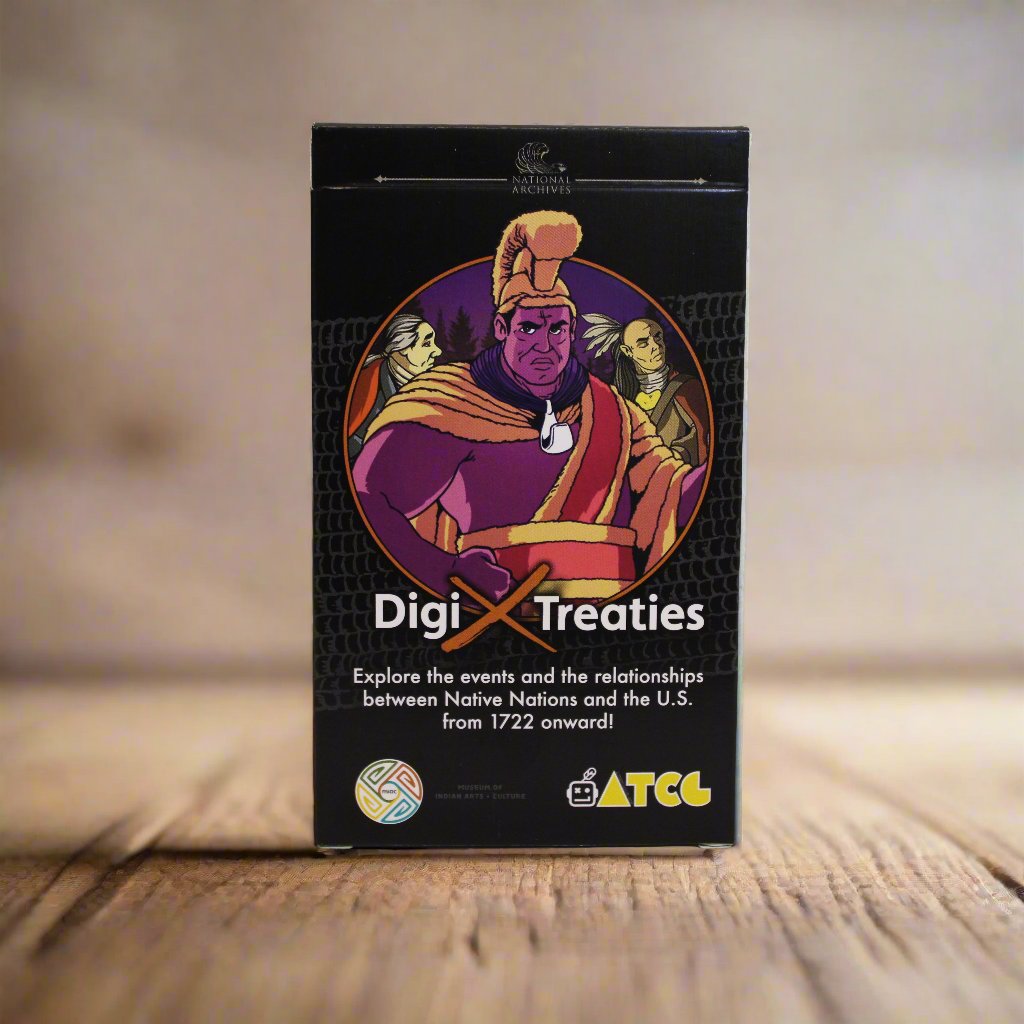



United States and Native Nations Trading Cards
- Scanned documents from the National Archives
- Explores events and relationships between Native Nations and the United States from 1722 onward
- 23 individual trading cards, plus 1 introduction card
-
The DigiTreaties Trading Cards provide an excellent starting point to explore events and the relationships between the U.S. and Native Nations.
QR codes lead to maps, timelines, scans of originals, and text of nearly 400 treaties made between the U.S. and Native nations.
The National Archives conserved and scanned the treaties and partnered with the Indigenous Digital Archive to add information. DigiTreaties brings information together in a way that makes it easy to explore happenings and changes for a time, a place, or peoples.
-
From 1774 until about 1832, treaties between individual sovereign American Indian nations and the United States were negotiated to establish borders and prescribe conditions of behavior between the parties.
The form of these agreements was nearly identical to the Treaty of Paris, which ended the Revolutionary War between the U.S. and Great Britain. The negotiations resulted in a mutually signed pact that had to be approved by the U.S. Congress. Non-tribal citizens were required to have a passport to cross sovereign Indian lands.
From 1832 until 1871, American Indian nations were considered domestic, dependent tribes. In 1871, the House of Representatives ceased to recognize individual tribes within the U.S. as independent nations with which the U.S. could contract by treaty. This ended the nearly 100-year-old practice of treaty-making between the U.S. and American Indian tribes.
The online exhibit "Rights of Native Americans" includes a visual timeline of the history of American Indian treaties and Native American activism to defend tribal sovereignty.